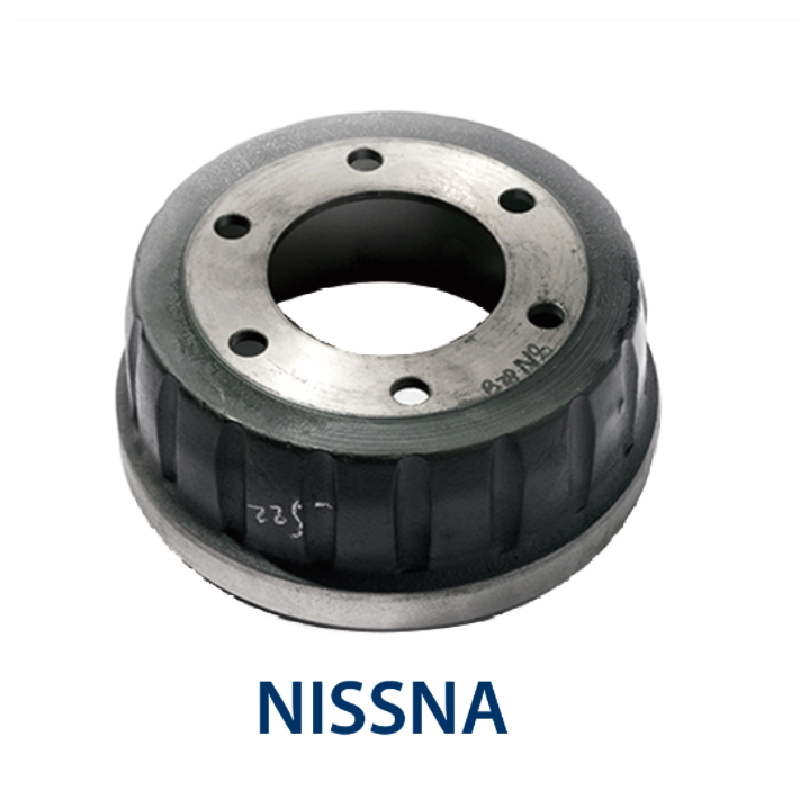Oct . 11, 2024 06:12 Back to list
Causes and Solutions for Scoring on Brake Drums
Understanding Brake Drum Scoring Causes, Effects, and Solutions
Brake systems are critical components of a vehicle, ensuring safe stopping and control. Among the various elements of a braking system, the brake drum plays a pivotal role in the performance and reliability of drum brakes. However, over time and with use, brake drums can become scored, leading to several performance issues. This article explores the causes, effects, and solutions related to brake drum scoring.
What is Brake Drum Scoring?
Brake drum scoring refers to the visible grooves or scratches that develop on the surface of the brake drum. These imperfections arise due to the constant friction generated between the brake shoes and the drum during braking. When you press the brake pedal, the brake shoes expand outward and press against the inner surface of the drum, generating the necessary friction to slow down or stop the vehicle. If the brake shoes or drums wear unevenly, it can result in scoring.
Common Causes of Brake Drum Scoring
1. Wear and Tear Continuous use of brake systems inevitably leads to wear and tear. As brake shoes wear out, they may not make even contact with the drum, leading to localized wear and scoring.
2. Debris Contamination Dirt, dust, and other debris can accumulate within the braking system. When these particles get trapped between the brake shoes and drums, they can create abrasive surfaces that score the drum.
3. Improper Installation Incorrect installation of brake components, such as misaligned shoes or improperly fitted drums, can lead to uneven wear, which ultimately results in scoring.
4. Moisture and Corrosion The presence of moisture can lead to corrosion on the brake drum surface. Corroded areas may become rough and can cause scoring when coupled with the friction from the brake shoes.
Effects of Scoring on Brake Performance
Scoring can significantly affect brake performance in several ways
1. Reduced Vehicle Control Scored drums can lead to inconsistent braking response, resulting in longer stopping distances and reduced control over the vehicle.
brake drum scoring

2. Vibration and Noise Scoring can cause vibrations through the brake pedal and noise during braking, detracting from the driving experience and signaling potential issues within the brake system.
3. Increased Wear on Components A scored drum can cause premature wear on brake shoes, leading to more frequent replacements and further repair costs.
4. Brake Fade The presence of deep grooves can lead to overheating of the brake shoes, leading to brake fade – a condition where brakes lose effectiveness due to high temperatures.
Solutions for Brake Drum Scoring
Addressing brake drum scoring involves several strategies
1. Inspection and Maintenance Regular inspections of the brake system can help identify scoring before it becomes a significant issue. Routine maintenance allows early detection and repair of wear and tear.
2. Resurfacing or Replacement If scoring is minor, the brake drum may be resurfaced to restore a smooth surface. However, if scoring is extensive or the drum is out of specification, replacement may be necessary.
3. Ensuring Proper Installation Careful installation of brake components, along with ensuring proper alignment and fit, can prevent uneven wear and scoring.
4. Keeping the Brake System Clean Regularly cleaning brake components can help reduce debris accumulation, lowering the risk of scoring.
5. Using Quality Components Utilizing high-quality brake drums and shoes can enhance the overall performance of the braking system and reduce the likelihood of scoring.
Conclusion
Brake drum scoring is a common issue that can compromise vehicle safety and performance. Understanding the causes and effects of scoring enables drivers and mechanics to address these issues proactively. Regular maintenance, proper installation, and prompt repairs are essential in ensuring a reliable braking system, ultimately contributing to safer driving experiences.
-
Brake Drum Man - High-Quality Drum Brake Drums & Brake Shoes for Reliable Performance
NewsJun.24,2025
-
High-Quality Brake Drum Kamaz – Durable Drum Brake Drum & Brake Shoe Replacement
NewsJun.10,2025
-
High-Quality Brake Drum Liza for Drum Brake Systems - Superior Durability and Performance
NewsJun.10,2025
-
High-Quality Brake Drum Kamaz – Durable Drum Brake Drum & Brake Shoe Solutions
NewsJun.10,2025
-
Durable Kamaz Brake Drums High-Performance Truck Parts
NewsJun.09,2025
-
Premium Brake Drum Maz Kit with Shoes Enhanced Braking
NewsJun.09,2025
